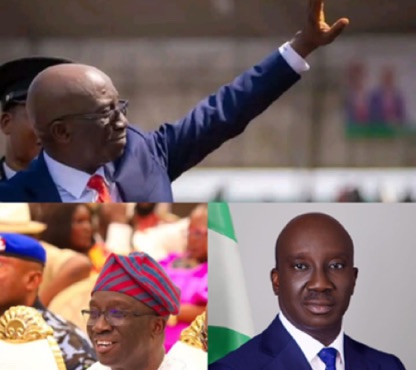Respite has come the way of Africa’s biggest refinery, the Dangote Refinery in Lagos State, as the Federal Executive Council (FEC) yesterday ordered the Nigerian National Petroleum Company Limited (NNPCL) to sell crude to it and other refineries in the country. The presidential order also instructed that the transactions should be executed in naira.
The disclosure was made by Bayo Onanuga, Special Adviser on Information and Strategy to President Tinubu on his X handle yesterday, noting that the decision will help stabilise the US dollar-naira exchange rate as well as the pump prices of fuel.
“Dangote Refinery at the moment requires 15 cargoes of crude, at a cost of $13.5 billion yearly. NNPC has committed to supply four. But the FEC has approved that the 450,000 barrels meant for domestic consumption be offered in Naira to Nigerian refineries, using the Dangote refinery as pilot. The exchange rate will be fixed for the duration of this transaction,” Onanuga said.
“Afreximbank and other settlement banks in Nigeria will facilitate the trade between Dangote and NNPC Limited. The game changing intervention will eliminate the need for international letters of credit. It will also save the country of billions of dollars used in importing refined fuel,” he added.
The Dangote Refinery is a 650,000 barrels per day (BPD) integrated refinery project in the Lekki Free Zone in Lagos State, south west Nigeria. It is Africa’s biggest oil refinery and the world’s biggest single-train facility.
The refinery complex started the sale of Automotive Gas Oil (AGO) otherwise known as diesel and the aviation fuel known as Jet A1 as early as April 2024. Shortly after the products were released into the market, Dangote also announced the reduction in the pump price of diesel from N1450 to N940 per litre while the price of Jet A1 was reduced to N980 per litre.
It should be recalled that an industrial brawl ensued between Africa’s richest man, Aliko Dangote, and the Nigerian Midstream and Downstream Petroleum Regulatory Authority (NMDPRA) of which the latter accused the former of producing sub standard products because it was yet to be fully licensed while the former responded by accusing the NMDPRA and the International Oil Companies (IOCs) of deliberately refusing to sell crude oil his plant in order to frustrate it.
Consequently, Dangote Refinery was forced to source crude from the United States of America, and Brazil, and is currently exploring the possibility of buying crude from Libya and Angola.
“We just bought crude from the US and Brazil. And we will search other African countries for the same. If we can get from Nigeria, there is no need for us to search for crude in other producing countries,” Dangote said.
Crude Oil Refineries Association of Nigeria (CORAN) had earlier canvassed the sale of crude oil to local refiners as this will ensure energy security and stability of the naira. Momoh Oyarekhua, Chairman of OPAC Refinery, during a breakfast meeting organised by the Nigerian-South African Chamber of Commerce in April 2024 made a proposal “that involves dedicating a specific portion of domestically produced crude oil to local refineries,” adding that by “prioritizing local refineries and promoting Naira-based transactions could pave the way for a more sustainable and self-reliant energy industry.”
Nigeria imports about N4 trillion worth of petroleum products on a quarterly basis due to the non-functioning of the three government-owned refineries in the country. The current decision to sell crude to local refineries in naira will go a long way to reduce the pressure on the nation’s currency, the naira.
Before the commissioning of Dangote Refinery, there were two modular refineries in Edo State producing refined petroleum products.
The first is the Edo Refinery (ERPC) which is a 6000 barrels per day modular refinery located in Ikpoba-Okha Local Government Area of Edo State, south-south Nigeria. It is a 100 percent owned subsidiary of AIPCC Energy. The refinery has two trains of 1,000BPSD, and 5,000BPSD, producing diesel, naphtha and Low Pour Fuel Oil (LPFO).
The second is the Duport Midstream Company Limited (DMCL)which houses 10,000 bpd modular refinery, 60million scf gas processing plant, 10million scf compressed natural gas (CNG) plant, 30,000 MT refined product terminal and a 20MW embedded power plant over 5-year period, located in Egbokor, Edo state.
Other refineries to benefit from this policy include the much-awaited Port Harcourt Refinery in Rivers State, Warri and Kaduna refineries.


